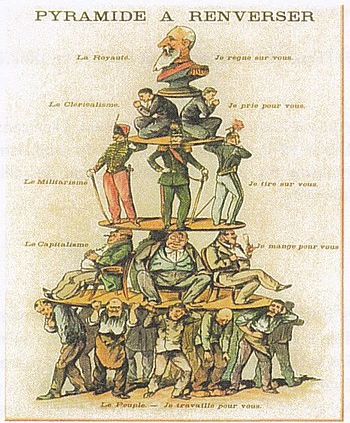Observations on Class in Britain and the United States
After being in Britain for a few months, I already feel that I’ve learned so much about British life, both from my classes and daily interactions and experiences. I have been most interested in what I’ve learned about class and the socioeconomic distinctions in modern and historical British life, especially in comparison to the US. A course reading from last week discussed how class in Britain is a deeply-ingrained, historically-derived social norm, and I was especially struck by how the text labeled the ‘upper’, ‘middle’, and ‘working class’ in the UK – these categories have entirely different meanings than what I had anticipated. I especially assumed that class distinctions would be similar in the UK and in the US, but it is clear to me that either the UK simply has a higher average standard of living and higher average wealth per person than in America, or the language and categorization labels used to make class distinctions are different and do not mean the same thing in both places. In the US, the ‘working class’ looks more like Britain’s underclass than its working class, which describes blue-collar jobs and incomes closer to what Americans today would call solidly ‘middle class’, which to Americans, would probably be upper-middle class. Is it simply more expensive to live in the US? Is the country too young to have distinct socioeconomic classes in which most of its citizens are still food secure and housed? It was interesting to see, however, that class distinctions are growing in both countries – I knew that the wealth gap in the United States has been growing rapidly in recent years, but I learned that this trend is the same in Britain, though I was also interested to learn from the text that class distinctions shrank when the economy boomed in the 50’s and 60’s. I wonder how dramatically different the two countries’ economies are in terms of the divisions of wealth among the general population – increasingly, American wealth is concentrated at the top and inequitably distributed between the middle and working classes.
When people in the UK hear my American accent, they usually seem to think it’s cool – especially upon learning that I’m from California. They ask about why I left and whether I’m staying in a nice area here in London. In the UK, accents and living areas seem to give clues about class and social positioning, which people are very keen to discuss and learn about. It doesn’t seem as taboo to talk openly about class and wealth here as it is in the US. I’m interested in how class here operates in relation to the more widespread public-funding nature of the UK, versus the more privatized capitalism of the US. Here, in part thanks to the NAtional Lottery, it seems that even lower classes can usually go to museums, find government housing, or use good public transportation regardless of class status, so I’m intrigued to see how my experiences here compare to my observations once I go back to the States.





